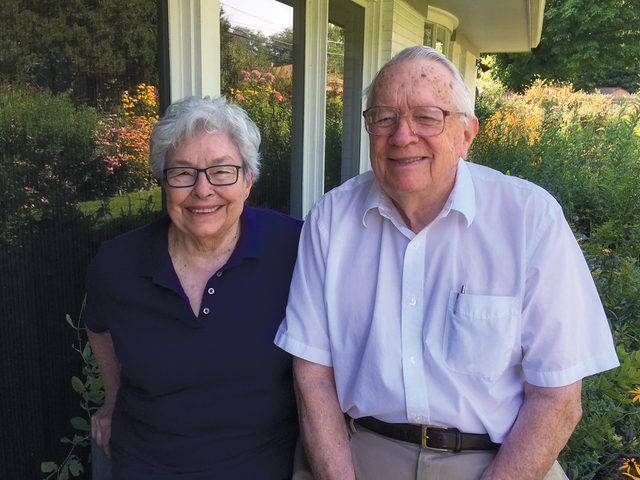 In the fall of 1954, Yvonne Connolly Martin ’58 almost didn’t come to Carleton. She was $50 short. She’d applied on the advice of her guidance counselor and hadn’t really thought about money. When her acceptance letter came, her parents—an insurance agent and a homemaker—sat down to figure out what they could afford.
In the fall of 1954, Yvonne Connolly Martin ’58 almost didn’t come to Carleton. She was $50 short. She’d applied on the advice of her guidance counselor and hadn’t really thought about money. When her acceptance letter came, her parents—an insurance agent and a homemaker—sat down to figure out what they could afford.
“I was on the phone with someone from Carleton, and I told them there was a $50 difference,” Martin says with a laugh. “They said, ‘Oh, that’s fine—you can work a few more hours in a work-study job.’” When she arrived on campus, she started working 20 hours a week answering the door for visitors to Evans Hall. At the going student rate, the $50 translated into 100 extra hours of work.
Because of that financial aid, a few decades after Martin graduated—during which she earned a PhD in chemistry, raised two daughters, and led a successful career in drug discovery at Abbott Laboratories—she decided to it was her turn help students with financial need. So she and her husband, Bill, established the Martin Endowed Scholarship in honor of her 50th reunion.
“Financial aid allowed me to come to Carleton,” Martin says. “And we wanted all students to be able to take advantage of what Carleton has to offer.” Recently the Martins decided to add to their fund to take advantage of the 1866 Scholarship Match, a $20 million challenge issued by Barbara Weitz ’70 and Wally Weitz ’70 that matches all new commitments from $100,000 to $2.5 million that create or add to an existing scholarship fund. With these additional dollars, the Martins are making a bigger difference in students’ lives.
Currently planning her 60th reunion, Martin points out that when she was a student, financial aid did not include loans, so students didn’t face the challenge of paying back debt, as many do today.
“Today students have more opportunities to pay for college with grants and loans, but it’s important not to end up with too much debt,” she says. “Carleton works hard to keep that down so students aren’t burdened.”
